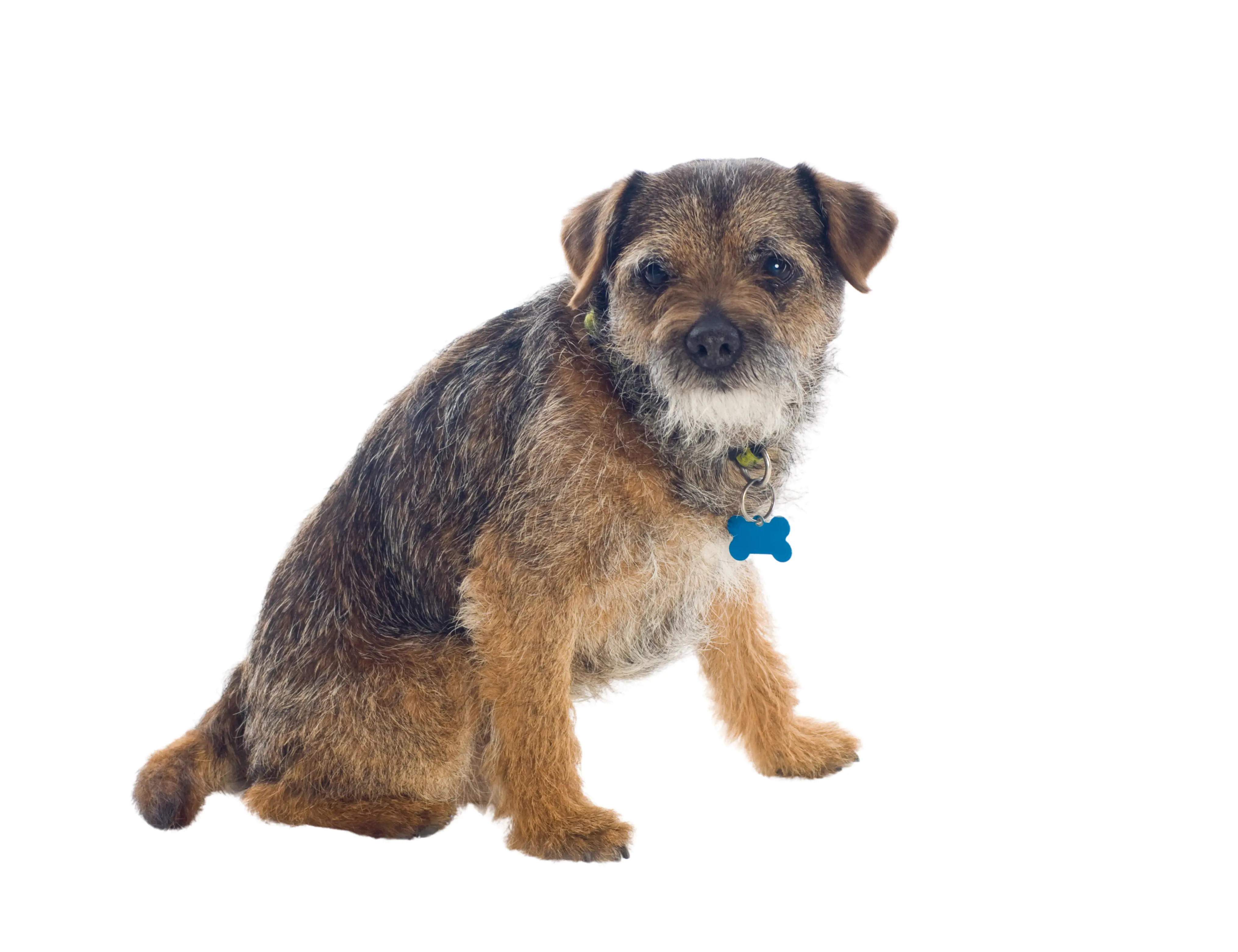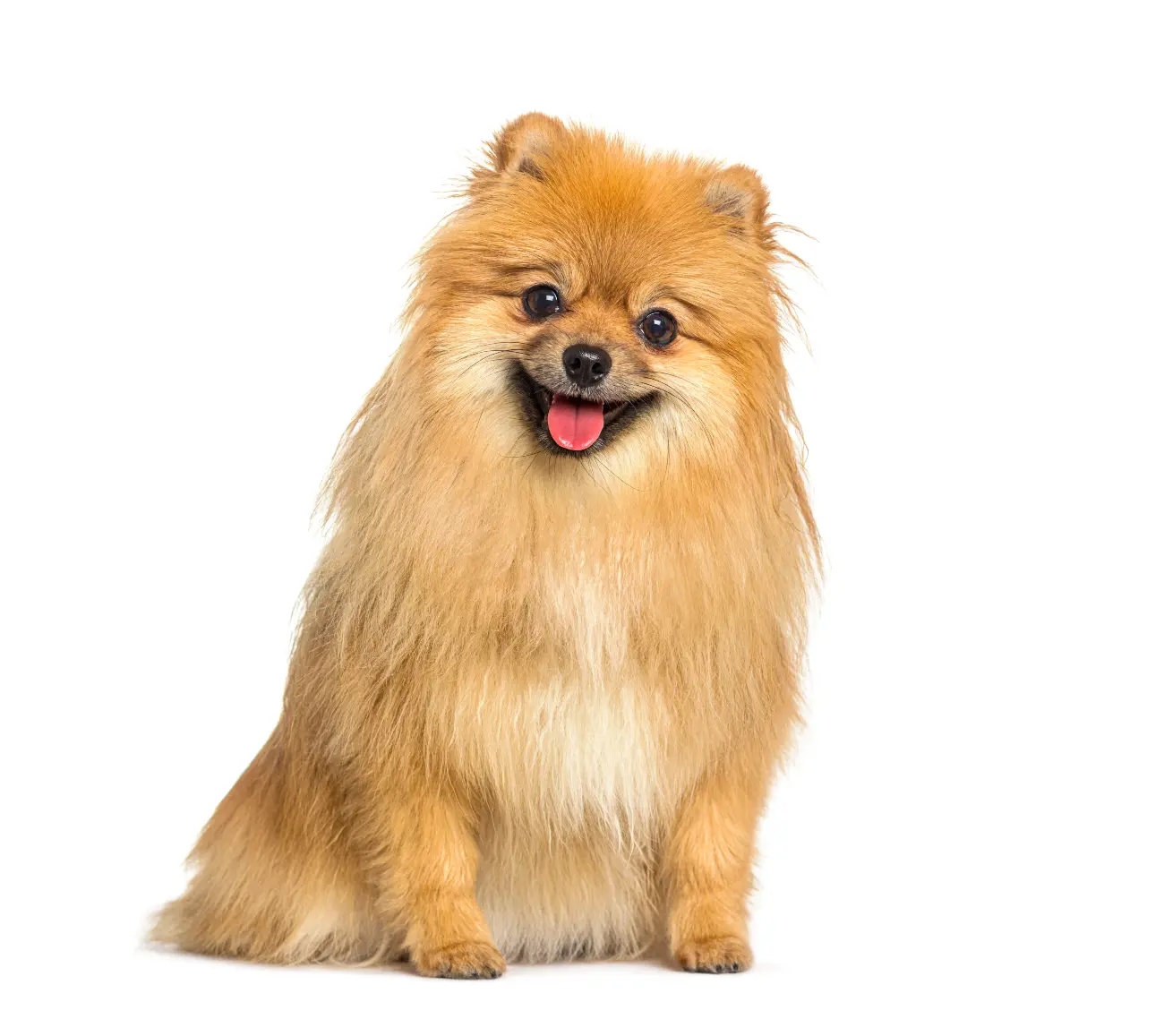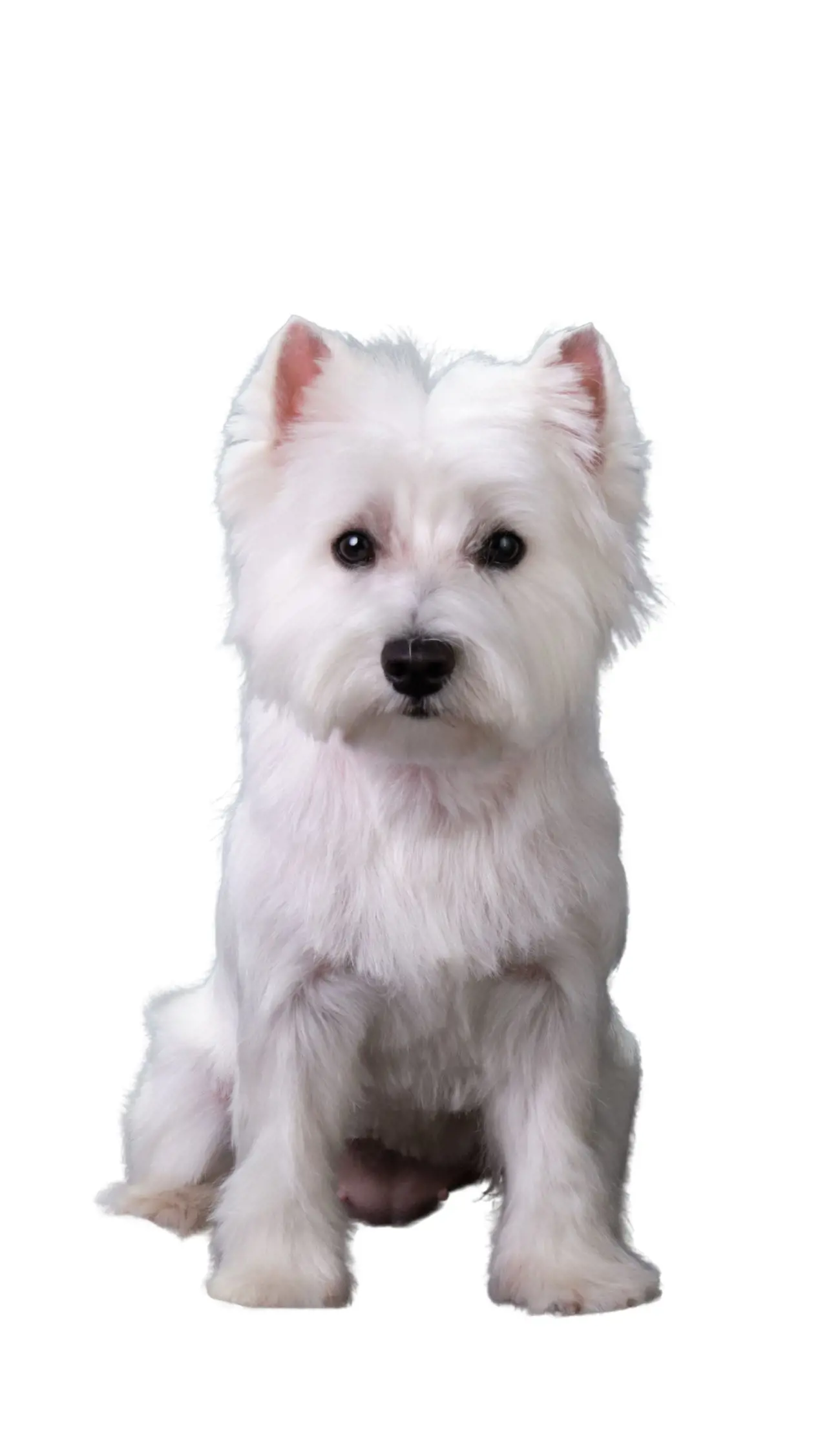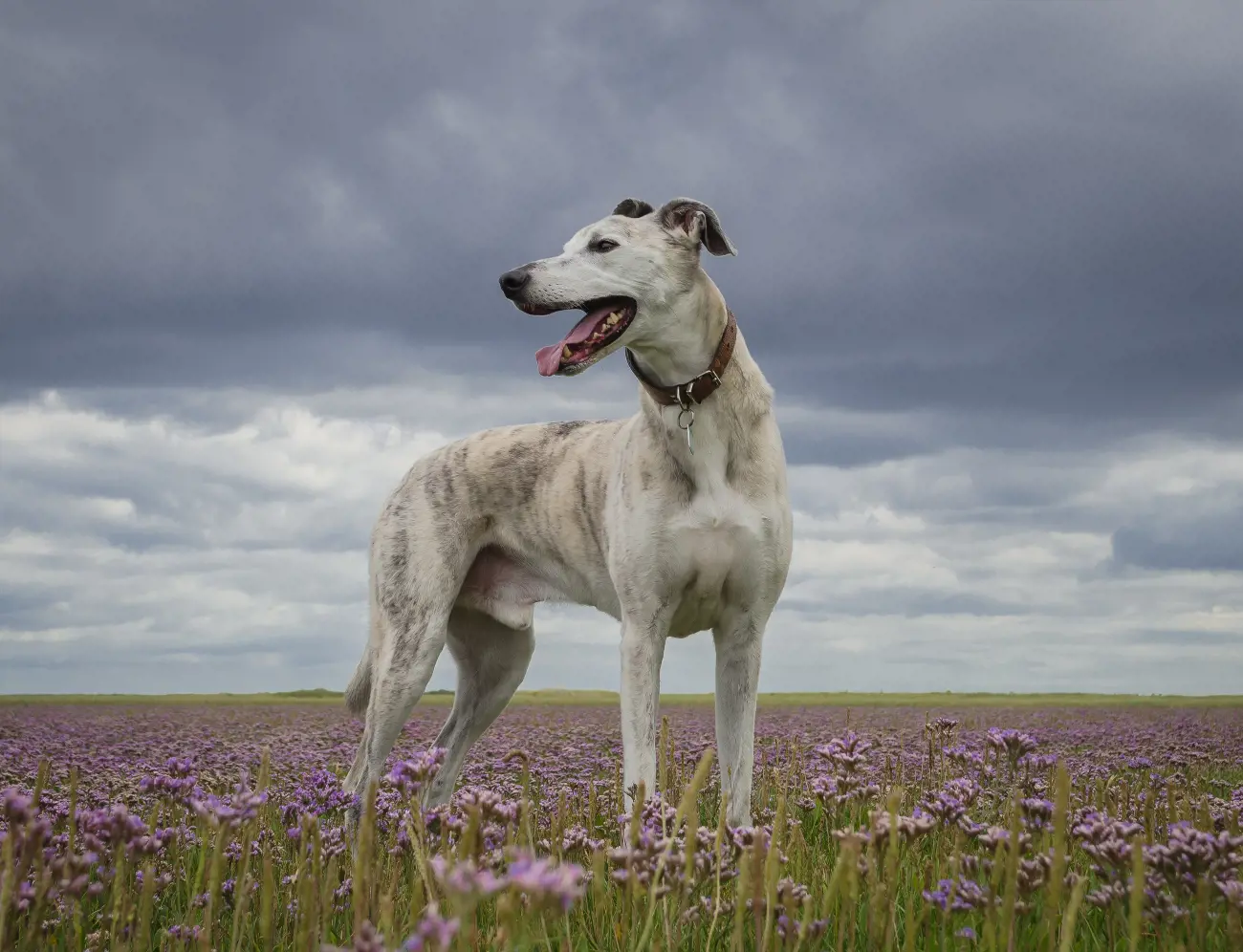
Top 6 vital stats about Lurchers...
Social
Great with families
Exercise
40+ mins a day
Grooming
Brush weekly
Feeding
2 times a day
Training
Highly intelligent and quick learners
Shedding
Minimum shedding
Lurcher health conditions & temperament
Do Lurchers need a lot of grooming?
Yes, Lurchers need regular grooming regardless if they have a smooth or rough coat. This is because it is essential for their well-being.
Do Lurchers suffer from health conditions?
Yes, Lurcher dogs are prone to several health conditions. Hip dysplasia is a common concern, where the hip joint doesn't develop properly, leading to pain and mobility issues.
Do Lurchers bark a lot?
No, Lurchers generally don't bark excessively. These dogs tend to be relatively quiet compared to many other breeds.
General temperament of Lurchers
Lurchers are typically a cross between a Sighthound breed (such as the Greyhound, Saluki, or Whippet) and a Collie or Terrier. Lurchers are a mixed breed, therefore no two are alike in appearance or behaviour.
Lurcher feeding & attention
How often to feed them?
Generally, adult Lurchers thrive on two meals a day, typically served in the morning and evening.
Are they social?
Yes, Lurchers are an active and social breed. These elegant canines possess a natural athleticism that demands regular exercise, often enjoying long walks, runs, and engaging in playful activities that challenge both their bodies and minds.
Easy to train?
Yes, Lurchers are generally easy to train due to their intelligence and eagerness to please. These agile and athletic dogs inherit traits from both parent breeds, often resulting in a quick-learning and adaptable companion.
General information about Lurchers
Greyhounds and Lurchers are Sighthounds with an extremely strong prey drive. This means that it is their tendency to chase tiny creatures, therefore be cautious around cats, smaller dogs, and other animals that may trigger their hard-wired hunting tendencies.
Lurcher personality & good to knows
Good with children?
Yes, these gentle giants often possess a calm and affectionate nature, making them patient playmates for kids of all ages.
Good with small living spaces?
Yes, Lurchers can adapt well to apartment living, provided their exercise needs are met.
Good with other pets?
Yes, when it comes to their interactions with other dogs, Lurchers are generally friendly and sociable.
General fact about Lurcher
As Lurchers are short-haired and slender, they will need several coats to match the seasons – from waterproof raincoats to light spring and autumn wear and extra cosy winter fleeces.
Did You Know?

Lurcher dogs are not actually a specific breed, but rather a type of dog? These fascinating canines are typically a cross between a Sighthound (such as a Greyhound) and a working dog breed (like a Collie or Terrier).
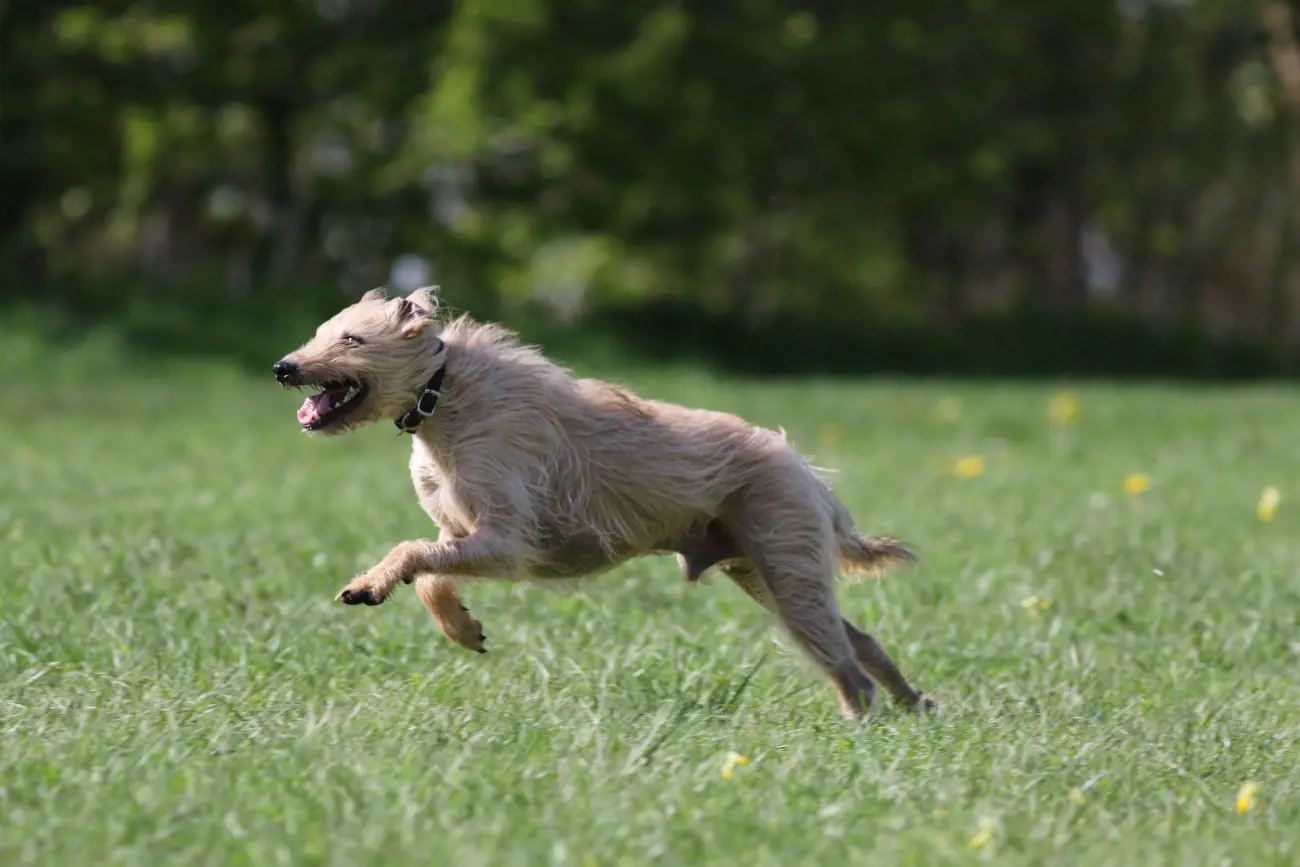
Lurchers are known for their incredible speed and agility, often reaching speeds of up to 40 mph in short bursts! Despite their athletic prowess, these dogs are often gentle giants at home, with a calm and affectionate nature that makes them excellent family pets.

Lurchers have a rich history dating back to the 14th century, where they were originally bred by Romani people for hunting and poaching.
Package available for your Lurcher includes
Bronze
Silver
Gold
Complementary treatment
Up to
£500
per illness/injury
Up to
£750
per illness/injury
Up to
£1000
per illness/injury
3rd Party Liability (dogs only)
Up to
£1M
per illness/injury
Up to
£2M
per illness/injury
Up to
£2M
per illness/injury
Death from Illness*
*Death from illness does not apply to dogs aged 9 and over & cats aged 11 and over
£1,000
£1,500
£2,000
Death from accident
£1,000
£1,500
£2,000
Lurcher Training & Exercise
- Incorporate daily runs or long walks, coupled with interactive games that challenge their problem-solving skills
- It's essential to start training early, focusing on recall and impulse control to manage their strong prey drive
- A daily routine of long walks or runs in a secure area is essential, allowing them to stretch their legs and satisfy their natural urge to sprint
- Lurchers are renowned for their love of comfort and will happily curl up on the sofa for extended nap sessions
-
A daily routine should include brisk walks or jogs, interspersed with short sprinting sessions in a secure area to satisfy for their need for speed. Interactive games like fetch with a flying disc can provide both physical exertion and bonding time.
-
Scent work games are perfect for these keen-nosed canines – try hiding treats around the garden and watch your Lurcher's nose go into overdrive as they track down their rewards.
Lurcher Common Health Conditions
- Hip dysplasia is a common concern, where the hip joint doesn't develop properly, leading to pain and mobility issues.
- Lurchers are susceptible to eye problems, including progressive retinal atrophy, which can cause vision loss over time.
- A a potentially life-threatening condition where the stomach fills with gas and twists on itself
- Regular veterinary check-ups, balanced diet and a stress free environment are key to maintaining your Lurcher’s health.
Lurcher Health & Social Maintenance
- Adult Lurchers thrive on two meals a day, typically served in the morning and evening
- Younger Lurchers or those with higher energy requirements may benefit from three smaller meals spread throughout the day.
- Start with a weekly brush-through using a soft-bristled brush to remove loose hair and distribute natural oils. For Lurchers with longer coats, consider using a slicker brush to prevent matting
- Bathing should be done sparingly to avoid stripping essential oils from their skin, but when you do, use a mild dog shampoo
- Lurchers are generally laid-back temperament means they can be great companions for children, provided if both the dog and child are taught to interact with each other respectfully
- It's essential to start training early, focusing on recall and impulse control to manage their strong prey drive. Consistency is key when working with Lurchers, as their independent nature can sometimes lead to stubbornness
Frequently Asked Questions
For a more active pursuit, set up an agility course with jumps and tunnels, challenging your Lurcher's athleticism and problem-solving skills.
Another fantastic option is the flirt pole, a long pole with a lure attached, which mimics the movement of prey and satisfies your Lurcher's natural chasing instinct.
Lurchers thrive on a mix of high-intensity exercise and mental stimulation. These agile canines excel in activities that tap into their natural instincts, such as lure coursing and agility training.






